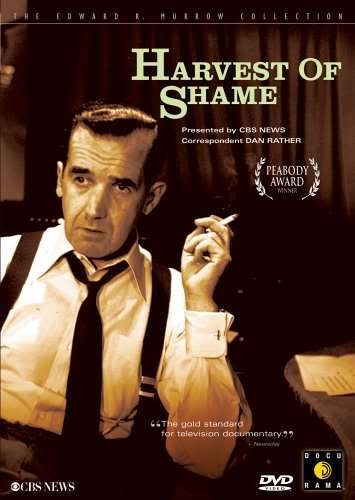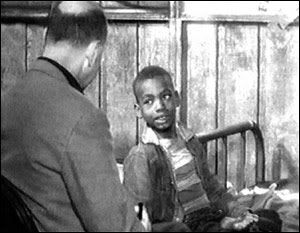If you know me in real life, you may also know I was in a journalism internship program for a good chunk of the summer. Mandatory movie nights were a part of the responsibility, along with a 2-week boot camp and seminars with folks from the Capitol as well as writers and editors from local news organizations.
I really enjoyed my summer as an intern for Eastern Group Publications. I learned a lot about myself and my writing since my first day in mid-June. It was an amazing journey that taught me I still have a ways to go but I know I can get there as long as I stay disciplined and stick to the standards I will be setting for myself this week. You can check out two of my articles that were published this summer: here and there!
Another thing I learned, or more so something that was reinforced, was that history repeats itself. One of the films shown during our weekly movie sessions was a Harvest of Shame (here's a youtube link in case you want to watch it in its entirety). The documentary was produced by CBS in 1960 as a part of a series by Edward R. Murrow. In Harvest of Shame, Murrow exposed the plight of America's farm workers.

I urge folks to take a look at the film and recognize that little has changed. Over 50 years has passed and farm workers are still fighting the same fight. It has me wondering if change will ever come, if we will ever live in a society that will give equal rights to all workers, no matter the field (no pun intended).
It is important to recognize that there were (and still are) farm workers across the United States. Ceasar Chavez, while an amazing man, was not the only one fighting for the rights of farm workers. He had a large backing, both on the right and left coast. Today the United Farm Workers is a group that is working to make sure this demographic has just rights while on the job.
What hit me about the film was how children were being affected by low wages, moving constantly and difficulties in school because of the aforementioned. The young boy below had to take care of his two sisters while his mother was in the fields. I believe he was 6 years old.

They also told the story of a few students who displayed their love for education but were not likely to reach high school because of their family situations. This group of people faced similar circumstances because of their lack of money which leads me to believe that sometimes classism is more potent than racism. I also think the two are closely linked.
Some would argue that classism breeds racism but I think that is a conversation for another post. Class stole the hope away from farm workers in 1960. Each person that was asked, "Do you think things will ever get better?" answered something like "No." or "It's not likely." It was real then and it's real now. Something has got to change. The solution is something I do not have at the moment but I hope someone has something brewing in their kitchen.
There is just not enough time in a day to have full passion for X number of issues while taking care of myself. I'm learning more and more that I cannot be involved with every movement but being aware of them and spreading awareness is great. My hope is that it will spark the passion to create change in someone else. Glad to share with all of you!
Are there any issues that you all are working on improving?
1 comment:
I am so excited to read this, Deonna! What a wonderful writer you are. I look forward to reading more posts--
Ellen Abrams
Post a Comment